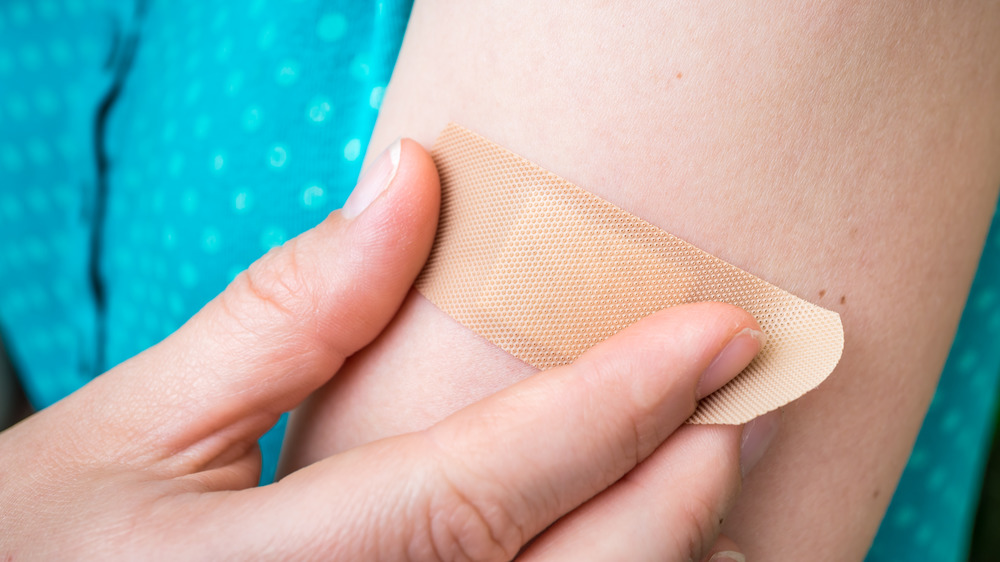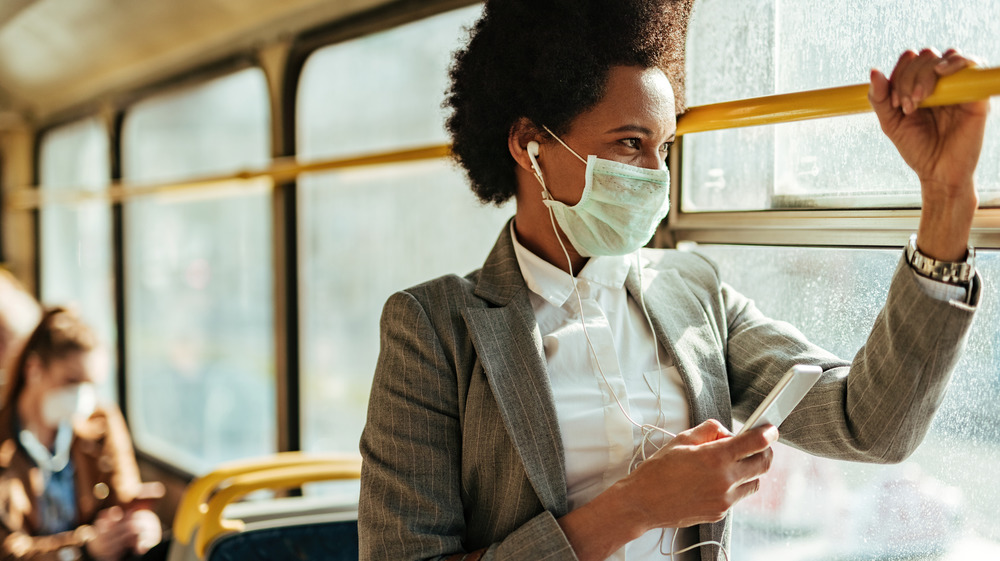This Is What You Should Do After Getting The COVID-19 Vaccine
As vaccines for COVID-19 roll out around the world, we're hearing more about how different people are reacting to the shot. While each person's immune system will respond differently, there are some things that everyone can do to help make the experience better, and prepare for life after vaccination.
While serious side effects from the COVID-19 vaccine are not common, there is evidence that many people have experienced mild reactions. These range from pain and swelling in the arm where the shot was given, to headache, fever, chills, and fatigue (via the Centers for Disease Control and Prevention (CDC). In fact, after your shot, you will be monitored for a short period of time to make sure you aren't having any major reactions.
Experts recommend talking to your doctor about taking pain relievers like acetaminophen or ibuprofen for any symptoms post-vaccination. You can also apply a cool, wet washcloth over the injection site to reduce discomfort —but just make sure the cloth is clean before using it. Exercising the arm where you received the injection may also help to reduce muscle soreness. And if you have a fever, drink lots of fluids and rest if you're able.
Don't let your guard down yet
According to the CDC, soreness and fever are normal reactions. You may feel like you have a mild case of the flu for a short time. But they caution that if you continue to have redness or pain at the injection site that is getting worse and not better, or if you're concerned about your symptoms or they don't go away after a few days, call your healthcare provider and let them know.
Most COVID-19 vaccines that are available right now require two doses for maximum protection. Don't forget to schedule your second dose right away. Different vaccines require different waiting periods before getting the second dose, and it's important to get your second shot from the same manufacturer as your first (via Johns Hopkins Medicine). After your second shot, your body still needs several weeks to build up full immunity to the virus. Because of this, experts warn that you still need to wear your mask, wash your hands frequently, and practice social distancing while you're out in public. Until a majority of people have been vaccinated, everyone needs to do their part to stop the spread of the COVID-19 virus.


